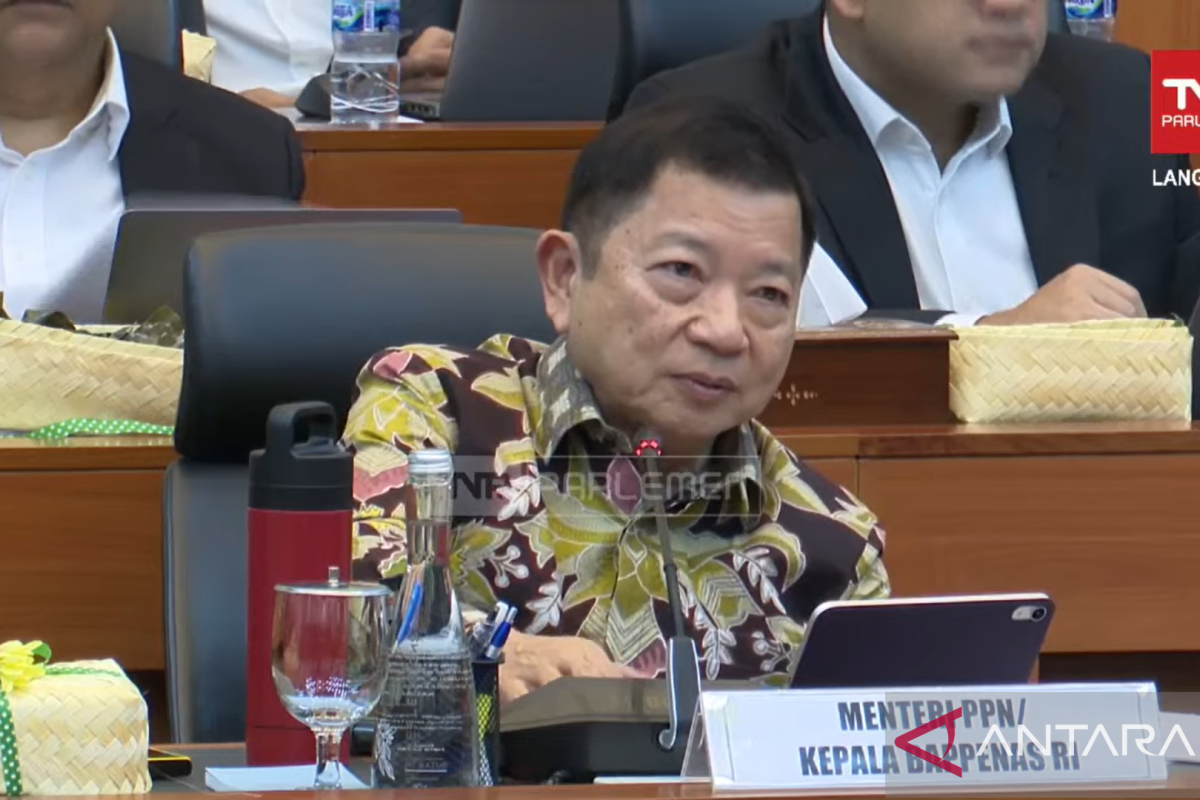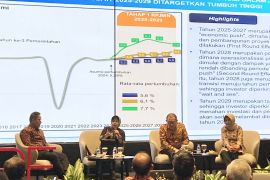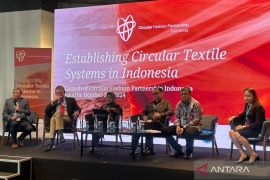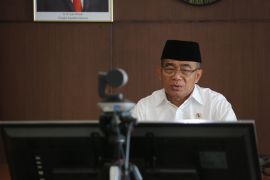To accelerate the reduction of extreme poverty, Bappenas will seek to continue social assistance with staple food provision, the Smart Indonesia Program (PIP), and subsidies on electricity and liquefied petroleum gas (LPG), support non-wage workers (PBPU), and improve target accuracy using data from the Socio-Economic Registration (Regsosek).
Second, Bappenas will work to increase the capacity of local government human resources (HR) to manage data and evidence-based planning. Third, it will look to expand the assessment and outreach of integrated social rehabilitation services for vulnerable groups.
"We are taking at least three approaches, namely, reducing the burden on the poor, then empowering, and then reducing pockets of poverty," Monoarfa informed in Jakarta on Tuesday.
Furthermore, his ministry outlined plans to reduce stunting and other diseases in Indonesia. First, it will seek to provide family assistance through the Family Assistance Teams (TPK) in various villages.
Second, it will expand the scope of the provision of supplementary food for pregnant women with chronic energy deficiency (PMT Bumil KEK) and underweight toddlers.
Third, Bappenas will work to expand the coverage of complete basic immunization. Fourth, it will strengthen the quality of surveillance data (E-PPGBM), starting from the smallest health service unit or community health service (puskesmas).
Fifth, it will develop a network of Hospitals of Excellence in every province, and sixth, it will accelerate the provision of specialist doctors.
These efforts have been designed by Bappenas based on priority issues in the poverty and health sectors that need to be addressed every year, Monoarfa informed.
Regarding the poverty issue, the government may need to bring as many as 6.7 million people out of poverty by 2024.
“The issue of extreme poverty that is currently being debated is about its basis. The sustainable development goals (SDGs) use the number 2.15 purchasing power parity (PPP). However, it has increased to 2.35 along with the introduction of the multidimensional poverty index. However, Indonesia is still using the number 1.9. If we increase it to 2.15, then the number of extreme poor will increase from 4.77 million to 6.7 million," he explained.
Meanwhile, on health issues, he informed that Indonesia has the third-highest number of cases of leprosy, with a total of 12,095 new cases recorded per year. Likewise, the nation is recording 969 thousand new cases of tuberculosis (TB) and 415,140 new cases of malaria per year.
"In terms of health, our leprosy cases are still the third-highest in the world, with 12 thousand new cases per year. Then, followed by new cases of TB are approaching 1 million per year. This is a result of tests being carried out intensively by the Ministry of Health so that the numbers that used to be hidden, now are starting to appear," he added.
Related news: Govt still optimizing efforts to eradicate extreme poverty: Minister
Related news: VP chairs plenary meeting to evaluate extreme poverty eradication
Related news: Local govts must create their own programs to tap potential: VP
Translator: Bayu Saputra, Resinta S
Editor: Azis Kurmala
Copyright © ANTARA 2023












